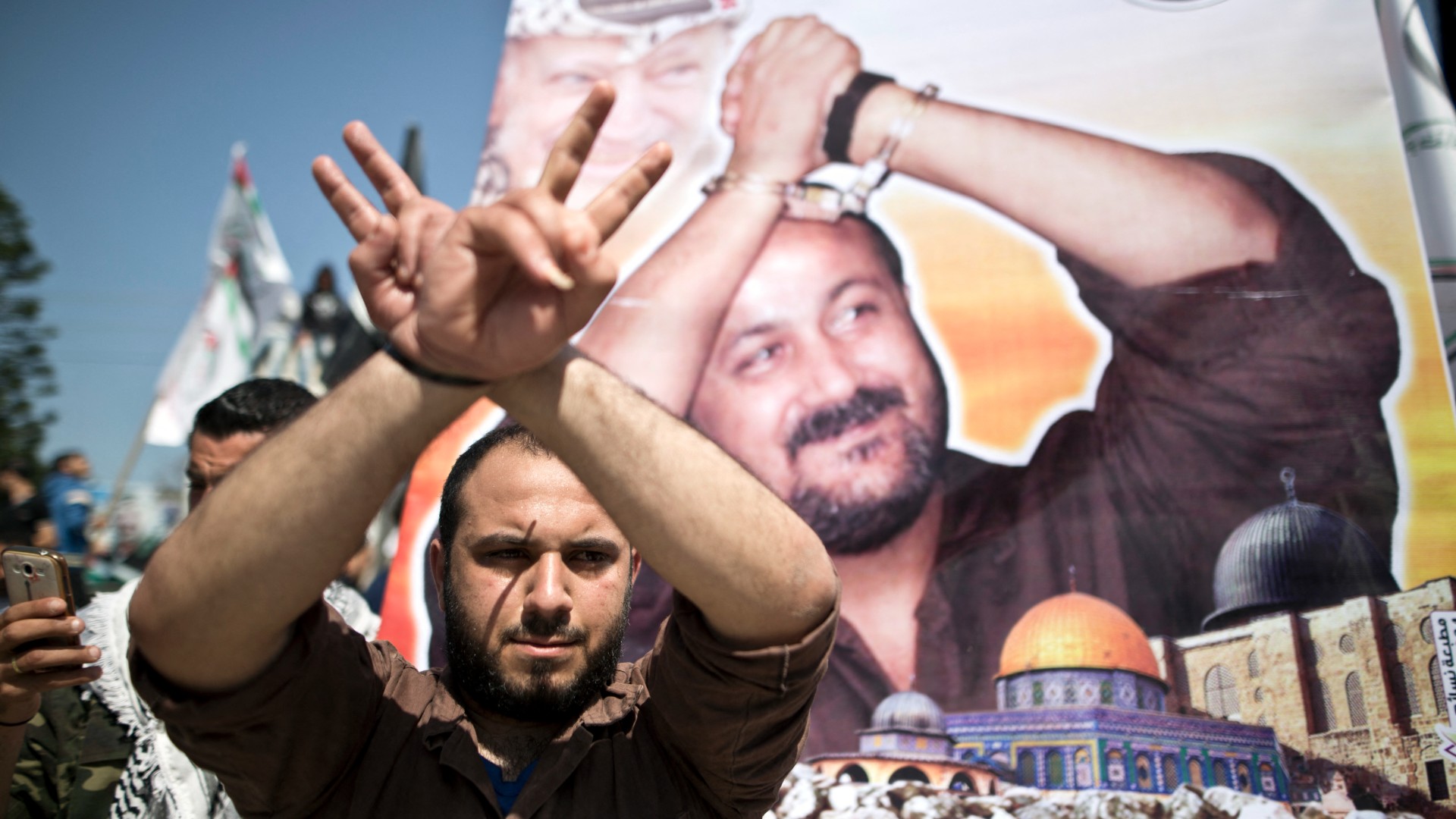Marwan Barghouti: the hostage seen as Palestine’s Nelson Mandela
Israel has refused to free Barghouti, though Trump is considering lobbying for his release as a further means to end the war


A free daily email with the biggest news stories of the day – and the best features from TheWeek.com
You are now subscribed
Your newsletter sign-up was successful
While President Donald Trump claims to have negotiated a ceasefire between Israel and Hamas, one of the key players in future negotiations remains behind bars. The 66-year-old politician Marwan Barghouti, who’s currently imprisoned in Israel, has been described by Palestinians as their Nelson Mandela but by Israel as a terrorist. Israel has remained adamant that it will not free Barghouti from his prison term, even as Palestinians push for his release.
'Unifying pragmatist or terrorist mastermind'
Barghouti was a student leader at Birzeit University in the West Bank and was involved in popular protests at the time of the first Palestinian intifada, or uprising, in 1987. In the 1990s, he emerged as a prominent figure in Fatah — the movement led by Palestinian Authority chief Mahmoud Abbas that runs the West Bank — rising to the position of general secretary. Described by The Times of Israel as Fatah's "terror chief," Barghouti is accused by Israel of having established the al-Aqsa Martyrs Brigades (AMB), and is currently serving five life sentences in an Israeli prison for his alleged role in deadly attacks during the second intifada during the early 2000s.
He is viewed by many Israelis as the "man who abandoned the peace process to lead the second intifada," said The Times, but his political role "was then and remains ambiguous." The other side of the conflict views him very differently; often described by Palestinians as the "Palestinian Mandela," he is seen as a "unifying pragmatist or a terrorist mastermind," depending on your political affiliation, said Haaretz.
The Week
Escape your echo chamber. Get the facts behind the news, plus analysis from multiple perspectives.

Sign up for The Week's Free Newsletters
From our morning news briefing to a weekly Good News Newsletter, get the best of The Week delivered directly to your inbox.
From our morning news briefing to a weekly Good News Newsletter, get the best of The Week delivered directly to your inbox.
Barghouti has maintained his high profile and influence during his 20 years behind bars, smuggling out letters, writing articles and being active in the prisoner movement. After a statement calling for support for Hamas in the current war was released in his name, his family claimed he was brutalized in prison, transferred to solitary confinement and held in the dark with loud music playing for days.
The future for Barghouti
Hamas has continually pushed for Barghouti's release, which could "reshape the Palestinian political landscape," said CNN. This is not the first time that Palestinian officials have tried to get him out of prison, but Israeli Prime Minister Benjamin Netanyahu "doesn't want a partner for peace," Barghouti's son Arab Barghouti told CNN.
Barghouti remains the "most popular and potentially unifying Palestinian leader," said The Associated Press. But if he were to be released, Israel "fears history could repeat itself after it released senior Hamas leader Yahya Sinwar in a 2011 exchange." Sinwar went on to become one of the main architects of the Oct. 7, 2023, Hamas terrorist attack that prompted the war.
Those in Gaza continue to view Barghouti on opposite ends of the spectrum, and he is seen by many Arabs as a "leader — perhaps the only one — capable of uniting Palestinians," said CNN. This is especially true given that the Palestinian Authority is "plagued by corruption and severe Israeli restrictions that have left it weak and under severe financial strain."
A free daily email with the biggest news stories of the day – and the best features from TheWeek.com
It is also unclear what role the United States could have in negotiating Barghouti's potential release; Trump is "considering whether to urge Israel to release" him as part of a means to further end the war, said Reuters. "I am literally being confronted with that question about 15 minutes before you called," Trump told Time in an interview earlier this month. "So I'll be making a decision."
Justin Klawans has worked as a staff writer at The Week since 2022. He began his career covering local news before joining Newsweek as a breaking news reporter, where he wrote about politics, national and global affairs, business, crime, sports, film, television and other news. Justin has also freelanced for outlets including Collider and United Press International.
-
 A dreamy long weekend on the Amalfi Coast
A dreamy long weekend on the Amalfi CoastThe Week Recommends History, pasta, scenic views – this sun-drenched stretch of Italy’s southern coast has it all
-
 Can foster care overhaul stop ‘exodus’ of carers?
Can foster care overhaul stop ‘exodus’ of carers?Today’s Big Question Government announces plans to modernise ‘broken’ system and recruit more carers, but fostering remains unevenly paid and highly stressful
-
 6 exquisite homes with vast acreage
6 exquisite homes with vast acreageFeature Featuring an off-the-grid contemporary home in New Mexico and lakefront farmhouse in Massachusetts
-
 ICE eyes new targets post-Minnesota retreat
ICE eyes new targets post-Minnesota retreatIn the Spotlight Several cities are reportedly on ICE’s list for immigration crackdowns
-
 ‘Bad Bunny’s music feels inclusive and exclusive at the same time’
‘Bad Bunny’s music feels inclusive and exclusive at the same time’Instant Opinion Opinion, comment and editorials of the day
-
 Is the Gaza peace plan destined to fail?
Is the Gaza peace plan destined to fail?Today’s Big Question Since the ceasefire agreement in October, the situation in Gaza is still ‘precarious’, with the path to peace facing ‘many obstacles’
-
 Gavin Newsom and Dr. Oz feud over fraud allegations
Gavin Newsom and Dr. Oz feud over fraud allegationsIn the Spotlight Newsom called Oz’s behavior ‘baseless and racist’
-
 ‘No one is exempt from responsibility, and especially not elite sport circuits’
‘No one is exempt from responsibility, and especially not elite sport circuits’Instant Opinion Opinion, comment and editorials of the day
-
 Businesses are caught in the middle of ICE activities
Businesses are caught in the middle of ICE activitiesIn the Spotlight Many companies are being forced to choose a side in the ICE debate
-
 ‘Human trafficking isn’t something that happens “somewhere else”’
‘Human trafficking isn’t something that happens “somewhere else”’Instant Opinion Opinion, comment and editorials of the day
-
 Trump’s ‘Board of Peace’ comes into confounding focus
Trump’s ‘Board of Peace’ comes into confounding focusIn the Spotlight What began as a plan to redevelop the Gaza Strip is quickly emerging as a new lever of global power for a president intent on upending the standing world order
